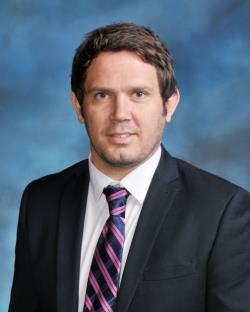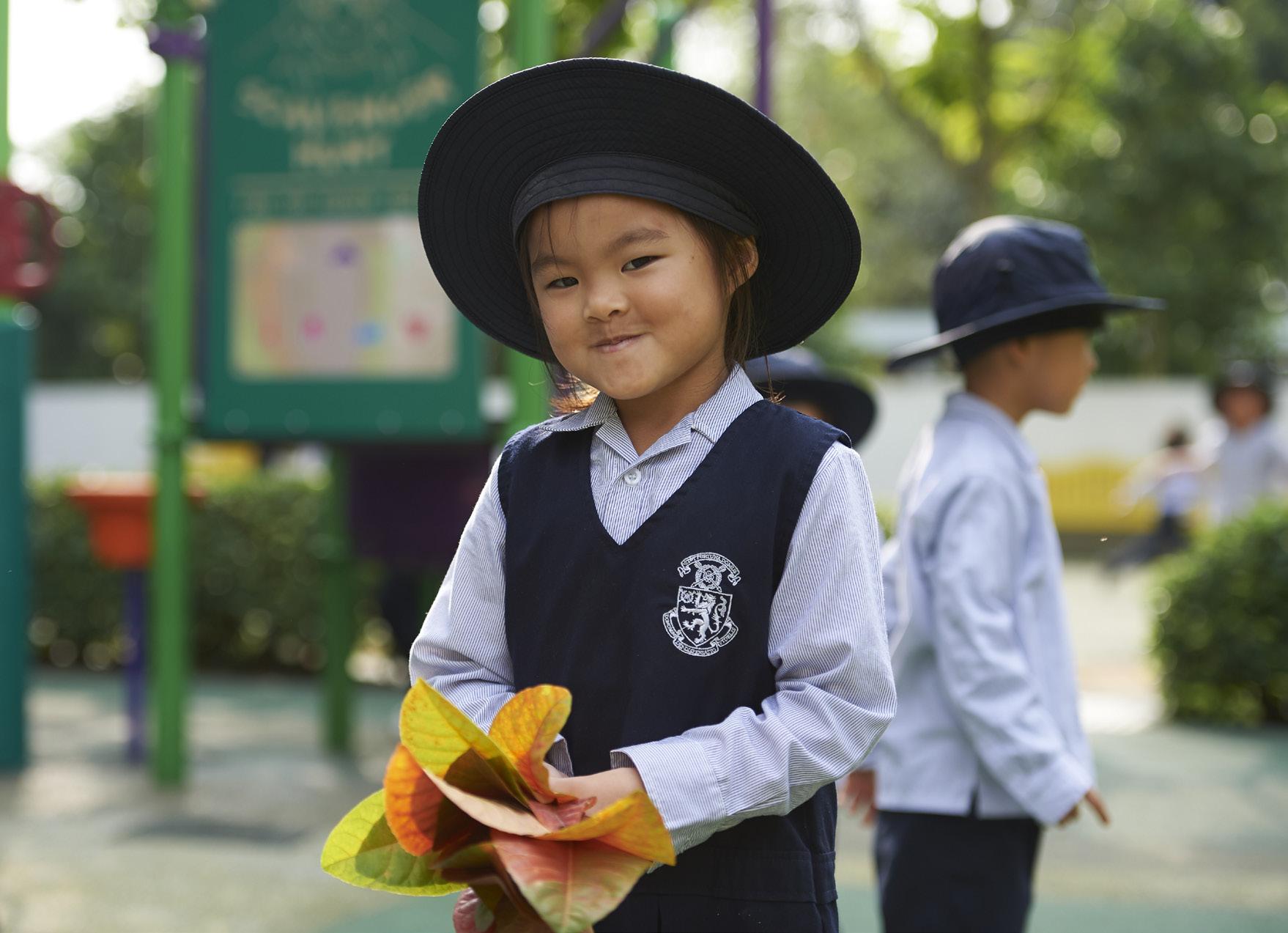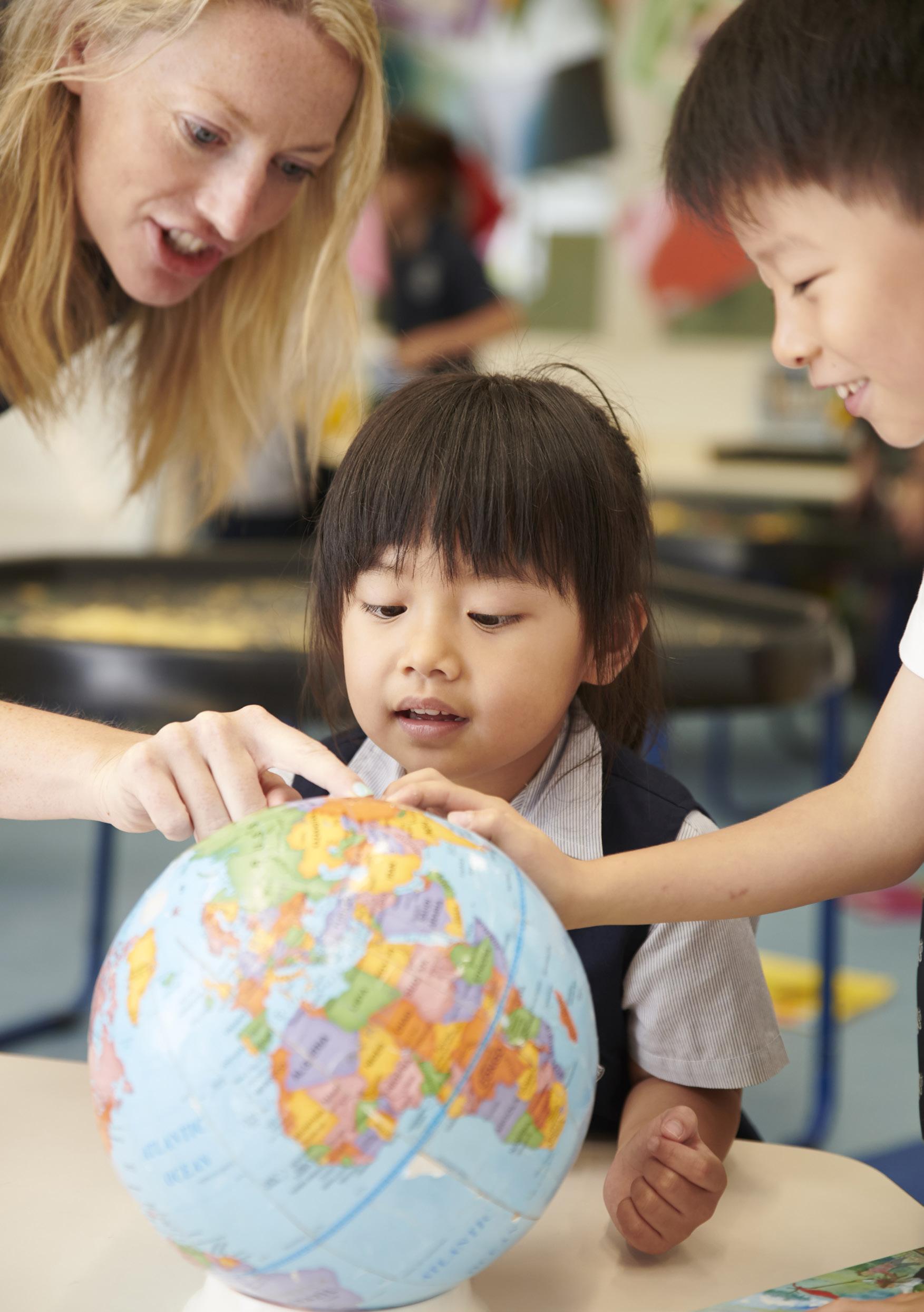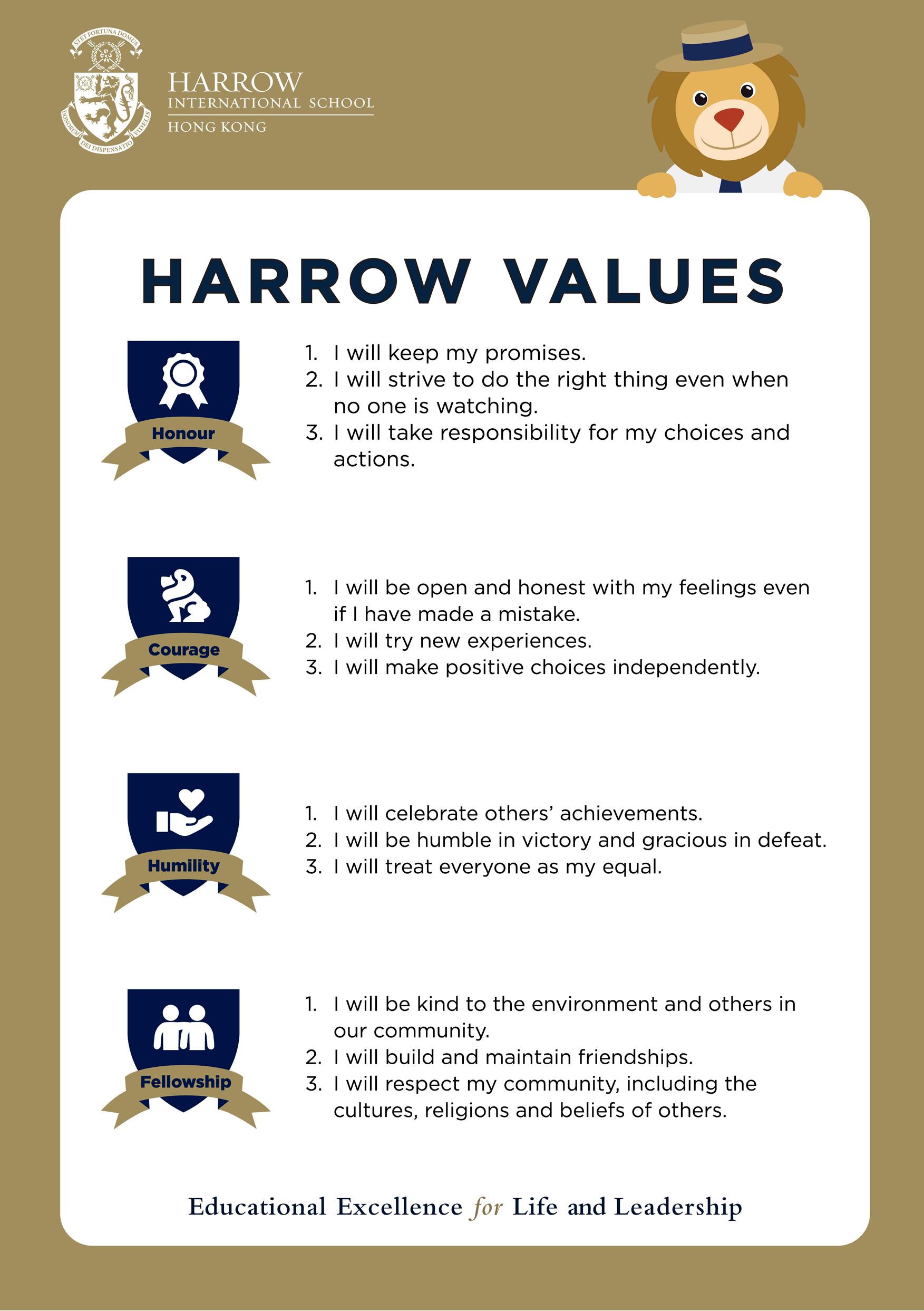2023-24


2023-24

I am delighted to welcome you to Harrow Hong Kong and, in particular, our Early Years Department. This is an important and precious time in a child’s educational journey and we are committed to ensuring your son and daughter’s first years of a formal school experience are full of learning, curiosity and fun. Our School has an outstanding reputation for academic excellence and is a School with courteous and considerate pupils who are confident, positive and happy. It is our aim to nurture and guide boys and girls to become well-rounded, healthy and resourceful individuals who will relish a challenge and have the confidence to seize life’s opportunities.
Dedicated, creative and experienced teachers deliver an intellectually rigorous curriculum in order to feed curious little minds. We value each child as a unique individual and ensure that all relationships are based on mutual respect. All staff take special care to ensure that children settle down quickly and happily into School. They are also eager to get to know parents and give you a chance to become actively involved with the School.
Harrow Hong Kong is an extraordinary place where pupils are offered support and encouragement to develop their potential to the full.
I hope that this booklet will help you to prepare for this new, exciting chapter in your little one’s life. I look forward to meeting you soon and seeing your child flourish as they move through the School.
Ann Haydon HEAD
The first years at school should be warm, inviting and fun filled with investigation, awe and wonder. In Early Years, the pupils will be stimulated through purposeful and meaningful learning that continues to challenge them throughout the school year. Having a safe, happy, fun and secure environment will ensure that they are motivated to learn. Every experience is an opportunity to learn and the pupils will understand the importance of the Harrow values of courage, honour, humility and fellowship; which underpin everything they will do.
We believe that our young pupils get the best learning experience through play. When they initiate their own learning, they begin to develop skills such as critical thinking, problem solving and initiative. There are challenges that will also be overcome that will make them into effective learners. Here they will learn how to confidently communicate their needs and feelings to others, work independently or part of a team and gain important life skills that develop them as a whole child.
The learning environments are created with the interests of the children in mind. Resources both in and outside the classroom can be selected independently and used to encourage conversation and exploration. At Harrow Hong Kong, we are proud of the amount of progress the pupils make during their first two years. We ensure that they have a fantastic foundation to build on when they do eventually move into the Lower School.
I hope the following information gives you an insight into life in the Early Years at Harrow Hong Kong.
Mr Chris Russell Assistant Head (Early Years)

There are a number of key personnel in the Early Years Department, who have leadership responsibilities and work closely together to provide a network of support for the pupils, and to ensure the smooth running of this phase of the School.



The Class Teachers are responsible for the day to day pastoral care of the K2 children in their classes. They plan and deliver a range of exciting lessons and plan open-ended activities for your children to explore by themselves. The Class Teachers are the first point of contact with the parents and are available to discuss any aspect of your child’s education with you.


The K2 classes are part of Harrow’s own bespoke Early Years curriculum. It sets the standards to ensure that children learn and develop well and are kept healthy and safe. It gives children a broad range of knowledge and skills that provide the right foundation for good future progress through school and life.
At Harrow Hong Kong, we provide a broad and balanced curriculum for our youngest pupils, aged 3 to 5 years, which is unique to Harrow Hong Kong. Pupils learn new skills, acquire new knowledge and demonstrate understanding through the 5 disciplines and the 10 domains of learning.

Disciplines provide content for essential learning behaviours that enable a perspective within which learning Domains will be utilised and applied.
The Learning Disciplines and their composite elements are as follows:
Emotional Development and Wellbeing
Curiosity
Motivation
Thinking, Cognitive Development
Creativity
The learning Domains identify the core content that children will require in order to be appropriately informed, knowledgeable and skilled.
The Learning Domains and their composite elements are as follows:
Communication and Language development (Home Language and English)
Social Development
Health and Hygiene
Literacy
Mathematics
The Arts
Understanding the World
Sustainability (Environmental Awareness)
Digital Knowledge and Awareness
Cultural identity, heritage and diversity / International Mindedness
AN EXPLANATION OF THE 5 DISCIPLINES AND 10 DOMAINS OF LEARNING

This discipline covers the elements of:
• Emotional Literacy
• Empathy
• Co-Regulation / Self-Regulation
Children’s development in this area is vital to ensure that they develop an understanding of their emotional and mental wellbeing; both in terms of their own self-awareness, and also how this relates to other people. Effective and successful learning and development in all areas is dependent on a secure sense of the ‘inner self’ as a strong basis on which to build other vital behaviours, qualities and attributes. A key aspect of this discipline is acknowledging a recognition that understanding emotions and feelings needs to lead to developing strategies for managing and channelling them effectively, and an awareness that we have a self-governed responsibility to do this.
Within this Discipline, children develop and demonstrate consistent and progressive behaviours in the following ways, in of each of the separate elements:
• Emotional Literacy
Children learn to understand that they have a range of their emotions and that these can change or be affected by different situations. They are able to recognise them and are able to name them. They are able to talk about different emotions and what events or situations trigger or lead to experiencing different emotions.
• Empathy
Children learn to understand that other people have feelings, thoughts and ideas which may be different from their own. They begin to realise and acknowledge that other people respond differently in situations and may experience situations differently. They begin to pre-empt and recognise how situations and experiences affect other people and are able to understand and describe this.
• Co-Regulation / Self-Regulation
Children learn how to manage and control their emotions, impulses and immediate desires. They begin to understand the impact and consequences of their actions and develop strategies to modify, reflect on and adapt their impulses in order to act appropriately in different situations. They are able to describe and talk about the process.
This discipline covers the elements of:
• Exploration
• Experimentation
• Making links
Curiosity is an innate, biologically primed behaviour and a core driver of learning and development. Effectively recognised and supported, it ensures that children are able to pursue their desire to further understand and make sense of objects, tools, ideas, situations and experiences. Through following this drive children learn to explore, experiment and hypothesise about the world whilst developing a sense of how to utilise existing knowledge and skills while building and developing new ones to further support future learning.
Within this Discipline, children develop and demonstrate consistent and progressive behaviours in the following ways, in of each of the separate elements:
• Exploration
Children maintain and enhance their innate exploratory drive and interest in understanding and making sense of the world around them. They use different tools and materials to understand their functions and properties and ask questions, and/or seek information to further add to their knowledge and understanding. They are highly motivated to seek knowledge and develop appropriate skills.
• Experimentation
Children are willing to try activities and use different resources in order to find out how they can be used for different purposes and what possibilities they offer. They try different ideas and strategies to address and solve dilemmas and challenges. They use language to describe processes and how they have resolved problems.
• Making links
Children are able to connect ideas together and use knowledge and skills in different ways and in different contexts to develop, deepen and extend their learning . They are able to draw from previous and existing knowledge to inform support and develop their thinking. They are able to articulate this and describe how aspects of learning connect together.
This discipline covers the elements of:
• Engagement / Involvement
• Independence
• Persistence
Sustaining motivation is critical for ensuring learning and development are successful and in order to build effective learning behaviours. Supported and valued intrinsic motivation channels children’s energy to fully engage in experiences and activities, and overcome challenges so that they remain focussed on achievement. Through this, they develop a range of skills and behaviours that foster vital life skills of independence, self-management and persistence. Through this, they also establish self-awareness and the foundations of resilience.
Within this Discipline, children develop and demonstrate consistent and progressive behaviours in the following ways, in of each of the separate elements:
• Engagement / Involvement
Children show deep fascination and genuine interest in a range of activities and events. They show high levels of concentration during different actions and experiences. They remain engaged for significant periods of time and demonstrate high levels of participation, enthusiasm, focus and energy. They are able to talk about their own interests.
• Independence
Children learn to approach and engage with activities and experiences on their own, asking adults for help when required. They are keen to complete and experience different elements of learning and development with increasing and confident independence. They manage their own behaviours, independent thoughts, choices and actions on their own without support.
• Persistence and resilience
Children learn how to pursue solutions to challenges and dilemmas, trying different ideas and maintaining a focus, despite encountering difficulties. They are able to review and react positively to mistakes and challenges. They continue to rehearse, refine and modify ideas, techniques, strategies and actions to arrive at a suitable, expected or appropriate conclusion or outcome.
This discipline covers the elements of:
• Executive Functioning
• Meta cognition
• Cognitive flexibility
Supporting the range of children’s cognitive abilities and attributes lies at the heart of the purpose of the Curriculum. The elements of cognition enable children to make sense of, understand and utilise their learned knowledge and skills in order to use them creatively, thoughtfully and effectively. By ensuring that these are specifically maintained and extended, children will be able to optimise their learning opportunities and development. Within this Discipline, children develop and demonstrate consistent and progressive behaviours in the following ways, in of each of the separate elements:
• Executive Functioning (organising our thoughts)
Children learn to develop their ability to understand their thinking and how this organises their knowledge. They learn strategies to manage their thinking, access their memory and recall information, skills and knowledge. This allows them to develop thinking behaviours that enables them to sequence and plan events and actions. They will be able to describe how they are able to do this.
• Meta cognition (how we know what we know)
Children are able to think about situations and address challenges to provide solutions or outcomes, which may be non-verbal. They learn how to describe their thinking processes and are able to explore how they know what they know using recall, memory and visualisation where appropriate. They develop a language that describes their thinking.
• Cognitive flexibility
Children are able to think about different ideas during an episode of learning and demonstrate this in different ways. They learn how to confidently move their thinking between different concepts and situations and can use this to review and understand different ideas. They are able to describe the thought processes that they use.
This discipline covers the elements of:
• Generating ideas / originality / imagination
• Communicating ideas
• Critical Thinking
Understanding and recognising the processes in creativity is important because, although children’s activity is intrinsically creative and their perceptions are unique and original, they still need the opportunity to discover their own strengths and use them to pursue their own expression and communication. Through exploring concepts, materials and knowledge in all learning domains, children develop and sustain the ability to think differently and combine ideas.
Within this Discipline, children develop and demonstrate consistent and progressive behaviours in the following ways, in of each of the separate elements:
• Generating ideas / originality / imagination
Children learn how to use their imagination to emulate and create different scenarios and approach ways of engaging in activities. They make choices using different tools, resources and ideas and use them in unexpected and sometimes unique ways. Children are able to adapt and modify their thinking and describe the processes they use.
• Communicating Ideas
Children learn how to use a range of different objects and materials to communicate thoughts, feelings and ideas. They are able to express and represent their thinking verbally and through different media and learning domains. They are able to refine and modify their representations and talk about the processes they use.
• Critical Thinking
Children learn how to make decisions and choices based on information and they decide how to approach and engage with activities. They learn how to evaluate activities and situations and change strategies and methodologies as appropriate. They express opinions about what they have heard and seen and are able to talk about their reasoning behind this.
This domain covers the elements of:
• Speaking / Expressive Language
• Listening / Receptive Language
Communication and Language lie at the heart of all learning and development. The ability to communicate with peers and adults enables children to establish a sense of identity and place within their community and the world. Children learn the protocols and cultural specifics of communication and develop an awareness of how to utilise this. The acquisition and development of Language(s) is a vital element, not just in the ability to communicate but also in order to access memory, recall knowledge and develop thinking strategies. The process of thought is mediated through language, and so ensuring that children have a rich and varied vocabulary is a central component of this. By developing the ability and knowledge to use words, phrases and idioms, ask questions and effectively engage in dialogues children will secure a solid foundation for success.
This domain covers the elements of:
• Co-operation
• Relationships
Developing their ability to understand the nature and purpose of social interaction is an important life skill and a key element in the enculturation of children into their community and the wider world. Although the process of attachment and the drive to seek out connections with adults and peers is a biologically given one, this is still an aspect of learning that requires careful acknowledgement, scaffolding and support. By learning the protocols of how to respond to, create and manage relationships, children develop and nurture a sense of security and belonging. By learning how to co-operate, compromise and take into account the needs of others, children refine and develop their knowledge and skills as responsible citizens and are able to function effectively as part of a community.
This domain covers the elements of:
• Physical Development – gross motor
• Physical Development – fine motor
• Self-care – food and nutrition
• Self-care – exercise
• Self-care – personal hygiene
In order to ensure that their physical health and wellbeing is fully supported and understood, children need opportunities to develop core muscle strength and refine their fine motor skills. Children are naturally active, and this energy needs to be challenged appropriately to ensure that physical development in all elements develops and thrives appropriately; physical health and development are critically linked to successful outcomes in all aspects of learning and development. Children also need to be taught and understand the impact and importance of personal health and hygiene, understanding the processes for this but also being fully aware of the reasons that underpin them. In order to be aware of the risks of cross-infection, children need to fully understand how this can be successfully mitigated through their own behaviour.
This domain covers the elements of:
• Story telling
• Reading
• Phonics
• Letter formation
• Writing
• Early Local Literacy
• Chinese
Understanding the world of print as a means of communication and also as a source of knowledge and information is the hallmark of all civilisations and vital to ensure that children develop into educated informed citizens. Children will need to be introduced to and rehearse the technical basics of literacy, alongside, and equal to, understanding its purpose and application to everyday life. Through understanding the role of literacy as a concrete expression of language, children will develop an awareness of how this is reflected in the range of print they see around them. Critical to this is also developing a love and understanding of the world of books, both fiction and non-fiction, and gradually developing their decoding skills on the basis of this. Children will also begin to understand how to communicate using letters and characters.
This domain covers the elements of:
• Number
• Number operations
• Shape
• Measures
• Time
Children need to develop a secure and well established mathematical understanding as a vital prerequisite for engaging with comprehending technical aspects of the world. The need for Mathematical knowledge surrounds us and enables us to communicate and understand in a common language. The discrete technical skills required for developing proficiency in counting, measuring, understanding geometric shape, a sense of time and patterns need to be learned alongside, and within a context of, how these can be utilised and relate to everyday life experiences. The sequential and developmental nature of mathematical learning will enable children to gain confidence in their increasing skills and knowledge and be able to readily apply this to support their own exploration and rehearsal of different knowledges and concepts.
This domain covers the elements of:
• 2D Art
• 3D Art
• Music
• Dance
• Drama
Artistic expression and communication enable children to explore, understand and value emotions, feelings, stories, thoughts and ideas, and channels their natural desire to create, understand and represent. It also enables them to experience the essence of different cultures and times and appreciate the beauty and energy of expression. Through engaging with a range of diverse and different media, genre, objects and artistic processes, children will learn how to develop their own style, techniques, preferences and individual means of expression and communication. Children will learn to value the Arts, both as a source of enlightenment, reflection, joy and escape, as well as understanding and appreciating it as an opportunity and a means to communicate.
• Science
• History
• Geography
In order to make sense of the physical and social world that surrounds them, children need to acquire a range of knowledges that explain and represent this. Additionally, they need to develop a core set of appropriate skills in order to investigate these knowledges and be able to apply and comprehend them in context that is meaningful to them. Using the principles of scientific investigation and understanding, the nature of scientific knowledge and enquiry enables children to grow a concept of the material world. Developing a sense of the past, and how it shapes us, those around us and the world is an important part of understanding our journey as a local and global citizen. Being able to identify elements of the natural world, and its impact on us will provide children with a secure understanding of a sense of place, and their role within it.
This domain covers the elements of:
• Environmental impact
• Environmental activity
Children are growing into a world where the impact on the environment and global climate are becoming more pronounced and urgent. These issues will increase in intensity and will require all citizens to take action in order to resolve them. By understanding the fragility of the planet we all live on and the importance of recognising the finite nature of some of the resources we take for granted, children will develop an ethic of care and responsibility for the world around them. Knowledge and insight, balanced with a practical understanding of the importance and nature of personal and community action, will equip children with the necessary skills and motivations to address these issues locally and globally.
This domain covers the elements of:
• Using technology
• Using Digital devices
• Developing awareness
• Developing Digital Innovation
• Pre – Coding
The rapidly evolving technological and digital world that children are both part of and growing up into, requires them to be astutely aware of the benefits of everyday and digital technology and their presence in the everyday world and their individual experience. Children will need to learn how to utilise appropriate devices safely, effectively and creatively to support, enhance and enrich their learning and development and be able to use them as a means of communication. Basic and advancing operational understanding and the knowledge of how to optimise the potentials of technological devices will ensure that children are comfortable, informed and familiar with appropriate equipment as they learn how to use them appropriately and effectively.
This domain covers the elements of:
• Festivals and Customs
• International Mindedness
• Diversity and anti-racism
In order for children to have a strong and confident sense of identity, they need to know and understand the heritage, customs, rituals and traditions of their own community and culture. Knowing the history and significance of events, festivals and celebrations will provide them with the appropriate scaffolding to secure their sense of belonging within their immediate community. From this secure base, children will also need to know about the diversity of the wider world, understanding that other cultures and societies have different customs and traditions and that being aware of these will enable their informed engagement with the global community.
We have Music specialists who teach one music lesson and one singing assembly per week. The children learn exciting new songs, how to distinguish between different pitches, play musical instruments and how to put movements to music.
We have excellent PE staff who will be teaching the children their PE lessons. The children will be taught a range of physical activities that are designed to improve core strength as well as their mobility, stability, spatial awareness coordination and teamwork.
Children in K1 and K2 will have the opportunity to be exposed to elements of Chinese culture and language from the next academic year. Through a variety of meaningful plays and learning activities, they will develop their curiosity, interest and understanding of this subject.
The relevant Chinese curriculum for K1 and K2 will be undertaken by the current experienced LS Chinese specialist teachers. Lesson plans and content have also been completed. We firmly believe that it will provide a wonderful learning experience for our children.
We Never Give Up Facing Challenges with Determination
We Work Together Solving Problems
Collaboratively
We Are Problem Solvers Solving Problems
Creatively
We Like to Help Contributing Positively to the Community
We Are Fair Making Fair & Just Choices
We Care For Others Applying Knowledge with Compassion
During weekly assemblies, children from each class will be give the class mascot to take home. This is given for a number of reasons that reflect personal progress on an individual basis and are also linked to the Leadership Attributes of the School.
At lunchtimes children are praised for good table manners. The behaviour expected at lunchtimes includes using ‘please’ and ‘thank you’, eating a sensible amount at an appropriate time, keeping elbows off the table, using cutlery or chopsticks with control, using an indoor voice during after dinner conversations, helping friends to clear up etc.



Every child in the EYC takes part in the Early Years Christmas Nativity. This takes place at the end of the Autumn Term and parents are all invited to come and watch. Dates and timings of the performances will be sent out closer to the time.
The School organises a celebration of Chinese New Year. This is a colourful and vibrant occasion and has a special place in the School calendar.
Children take part in an Easter Hat Parade and an Easter Egg Hunt at School. They create their hats at home and bring them in for judging on a date which will be emailed to all parents. It is a light-hearted and fun event for all the EYC children and their families.
All children in the EYC take part in a competitive Sports Day at the end of the Summer Term.
Out of School experiences are very valuable. These will be arranged as appropriate and will support the curriculum. Further details will be sent out before any trip, outlining what the children will be doing, where they will be going and what support will be needed.

When bringing your child into School, please encourage them to be involved in their morning routine. Don’t worry about leaving them. There will be some tears, but it promotes independence.
For the first week of School you are very welcome to come into the classroom and settle your child. When we start the carpet session with the whole class we ask that you please say goodbye and leave at this time. We are very sensitive towards the needs of the children and will support them accordingly. If you are at all worried, please let us know and we will give you a call later to let you know that all is well.
If you have any changes in circumstance such as illness in the family or anything that might unsettle your child during the day, please let us know. Even if it seems very trivial, it could help us to support them.
Please ensure that you have applied sun screen on your child before arriving at school each day during the summer months. It is advisable to purchase a longer lasting sun cream so that it will last the entire day. Children are also required to wear hats outside during outdoor play. Can the children also bring mosquito spray.
Every child will have a Pupil Diary, which will be checked by a member of the EY team each day. We will write in any information regarding what your child may need to bring in or remember for a forthcoming event in School. Please check your child’s bag and diary every night.
Please see the uniform list that you have been sent for the full list of items that your child will need in the EYC each day (also available on the website). Please can all clothing and other uniform items be clearly named. This helps us to identify items and also helps your child to be responsible for their own belongings. Sun hats, mosquito repellent, a spare set of clothes, a pair of wellies and a raincoat are also required and should be kept in School.
We provide all children with a healthy snack in the morning. A range of snacks is available including fresh fruit, healthy sandwiches, milk, raisin buns and cheese with crackers. There isn’t a dedicated snack time and the K1 childrean enjoy a ‘rolling snack’ which means they can choose when to have their snack in the morning.
Children all eat lunch together in the Early Years dining area. We have a family approach to dining and staff sit with the children to eat. A healthy meal is provided by the School for your child. The EY staff will encourage your child during lunch and monitor closely what they eat. We are sensitive to children who find mealtimes difficult and will work with parents to ensure that they are eating enough to sustain a busy day at School. Most children will eat well at School because they can see their peers eating and many will try new foods with confidence as a result. Please let us know of any special dietary requirements. Details of meals being served in the EYC can be found on the School website.
There will be a ‘Meet the Teacher’ meeting in the first half of the Autumn Term where the K2 Curriculum will be outlined to parents. There will also be a Parent/Teacher consultation where you will be able to discuss how your child has settled and what progress they have made in that first term. At the end of the Autumn Term you will receive a short report outlining progress and areas for development.
In the Spring Term, we will hold a Celebration of Learning Day where you will be invited into the classroom to participate in a session with your child and have an informal meeting with your child and the teacher to update you with progress and targets.
If there is a change in childcare arrangements, we would encourage you to write changes/ play arrangements in your child’s diary or directly contact the EYC Office. In the event that someone unfamiliar to the Class Teacher comes to collect a child, parents will be contacted to check before the child is allowed to go. Informing us of any changes in advance makes this process as smooth as possible for everyone involved. The children not taking the bus will be dismissed from the terrace outside the classrooms.
It is good practice to check your child’s temperature before they come to School each day. Any child with a fever (oral temperature higher than 37.5°C or ear temperature higher than 38°C) should stay off School for 24 hours.
If your child requires Panadol or other pain-relieving medicines to attend School without a temperature they should not be sent to School. Any child who has suffered from sickness or diarrhoea must stay away from the EYC for at least 48 hours from the last bout of illness.
We will call you if your child suffers from a fever, sickness or diarrhoea whilst at School and ask you to come and collect them. This is to protect our youngest and most vulnerable children from infection. You must please inform us immediately if your child has an infectious disease. The EYC reserves the right to refuse admission to any child on health grounds and follows the whole School sickness policy.
Whilst every possible care is taken to ensure that your child is safe in our care, children will at some point inevitably bump or bruise themselves in the course of their play. When this happens, we will comfort a child who is distressed and deal with any minor injury in the EYC (by cleaning a graze, applying a plaster etc.). Any more serious injuries will be referred for further treatment.
Your child must be fully toilet trained, wearing underwear (no nappies or pull up pants). We encourage all children to be independent when going to the toilet. Staff can support children where needed and frequent reminders are given during the day.
Please provide spare clothes and underwear which can be kept at School so that children can change if needed. A note will be added to the diary if your child has been changed.
Every child in the Early years has their own Online Learning Journey. This is accessible via the internet. You will receive an email asking you to create a parent account. Then you can see observations of your child, including photos and comments. You can respond to these observations with your own comments. Your child’s work will be kept in a folder and sent home at the end of the year.
Your child only needs to bring the items stipulated on the uniform list to School each day. Please do not send toys or snacks into School with your child as they may get lost or damaged and there is plenty at School for your child to play with and to eat and drink! There may be children in School with your child with severe allergies and this is another reason why we ask that no foodstuffs should be sent in your child’s bag.
All children need to bring a plastic reusable water bottle to School every day, clearly labelled with their name. It should only contain water (please no juice or fizzy drinks). They are stored so that children can help themselves during the course of the day.
Please come and talk to your child’s Class Teacher initially. They will have a good relationship with you and your child and should be able to answer any queries or issues that may arise.
8.00 AM
Main School bell – Early Years Centre opens
8.00 AM – 8.15 AM
Flexible drop off
8.15 AM Morning session begins
9.30 AM – 10.00 AM
Break time 11.30 AM Lunch 12.35 PM
Afternoon session begins
1.55 PM – 2.00 PM
Home time – please be prompt to pick up your child between these times.
2.00 PM
Buses depart
We hope that these activities and the information contained here will assist you in preparing you and your child for K2 at Harrow International School Hong Kong.
Should you have any further questions, please do not hesitate to contact us at eyc-info@harrowschool.hk
EYC OFFICE
eyc-info@harrowschool.hk
2299 6233
ASSISTANT HEAD (EARLY YEARS)
MR CHRIS RUSSELL
crussell@harrowschool.hk
HEAD OF LOWER SCHOOL
MR BRENDAN SHANAHAN
bshanahan@harrowschool.hk
HEALTH CARE CENTRE
hcc@harrowschool.hk
2299 6215
LOWER SCHOOL OFFICE
ls-info@harrowschool.hk
2298 6122
Starting school can be much easier and happier if your child is independent and can do many things for themselves.

Use the bathroom independently?
Dress and undress themselves for school and P.E.? (without adult support)
Recognise their own clothing? (please clearly label all equipment and clothing)
Feed themselves?
Share toys and equipment with others?
Listen and take turns?
YOU CAN:
Encourage your child to be as independent as possible even if it takes longer to get ready.
Allow your child to become accustomed to leaving you or being left with another adult (practise with friends)
Talk to your child, naming familiar things and discussing what they see around them. Give your child as many varied experiences as possible. These are particularly important for children not attending an educational setting yet: Spend time as a family. Read books, watch movies. Go swimming. Get them familiar with water. Let them put their heads underwater. Physical exercise (improving hand/eye coordination through throwing and catching)
Encourage your child to become familiar with
Pencils Crayons
Water Chalks
Paints
Playdough
Sand
